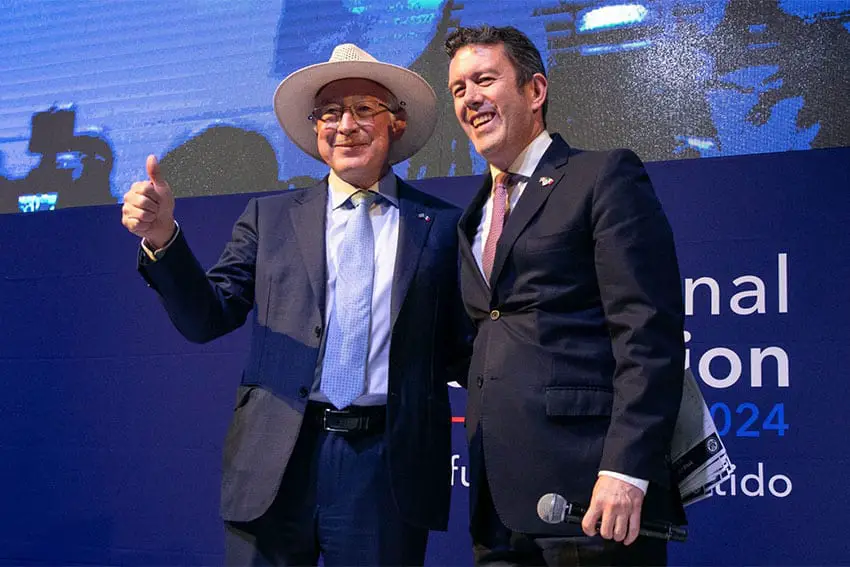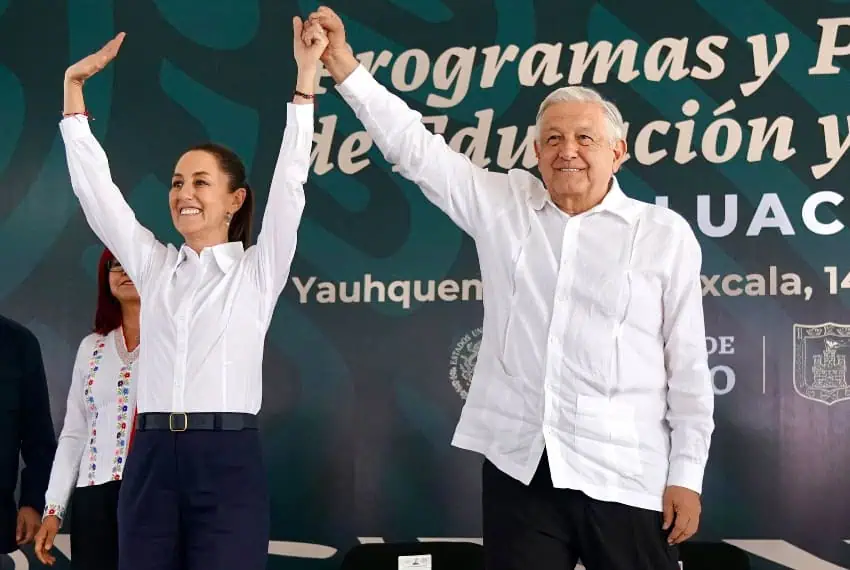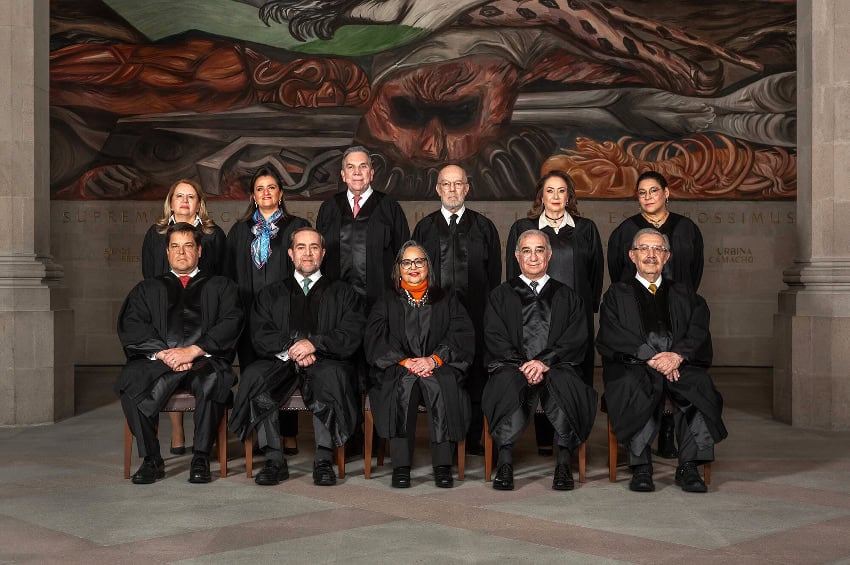“The Mexican people are capable of judging what is in their own best interest. The United States should not disenfranchise them by suggesting otherwise.”
Those two sentences form part of the response from incoming foreign affairs minister Juan Ramón de la Fuente and soon-to-be economy minister Marcelo Ebrard to remarks made by United States Ambassador to Mexico Ken Salazar and The Washington Post about the federal government’s judicial reform proposal.

A day after the judicial reform bill was approved by lawmakers in Mexico’s lower house of Congress, the Post published a letter written by De la Fuente and Ebrard in response to Salazar’s Aug. 22 statement on the reform proposal and an editorial published by the Post three days later.
In his statement, Salazar said he believed that the “popular direct election of judges is a major risk to the functioning of Mexico’s democracy.”
He also said that “the debate over the direct election of judges … as well as the fierce politics if the elections for judges in 2025 and 2027 were to be approved, will threaten the historic trade relationship we have built, which relies on investors’ confidence in Mexico’s legal framework.”
The Washington Post editorial board broadly agreed with Salazar and declared he “had every right to weigh in” on the issue, an opinion in sharp contrast to the view expressed by President Andrés Manuel López Obrador.

It said that the “mutual interests” of Mexico and the United States “in issues spanning commerce, migration, organized crime and national security … justify Mr. Salazar’s concern that Mr. López Obrador’s ‘reform’ lacks the ‘safeguards that will ensure the judicial branch will be strengthened and not subject to the corruption of politics.'”
The editorial board also said that claims from López Obrador and President-elect Claudia Sheinbaum that the objective of the reform is to eliminate corruption in the judiciary are a “smokescreen.”
“Mexico’s judiciary often dared to resist Mr. López Obrador’s more capricious policies, and those of his party. He wants to defeat it once and for all,” the Post said.
The editorial board also said that “it would be a shame if judicial independence in Mexico died because Ms. Sheinbaum lacks political independence from Mr. López Obrador.”

Sheinbaum, a political protégé of the president, fully supports the reform and this week declared that it won’t “affect our trade relationships or private national and foreign investment.”
In their letter to the Post, De la Fuente, a former federal health minister who recently served as Mexico’s U.N. representative, and Ebrard, a former foreign affairs minister and Mexico City mayor, wrote that “Mexico is undergoing an internal process to address much-needed reform of its justice system, with the purpose of strengthening and reinforcing its transparency and efficiency.”
“These are values both the United States and Mexico share,” they said.
In their letter, published under the headline “The U.S. doesn’t have standing to criticize Mexico’s judicial reforms,” the two incoming ministers described claims by Salazar and the Post that the direct election of judges “somehow threatens Mexico’s democracy” as “both worrisome and puzzling.”
“Contrary to The Post’s argument that Mexico’s domestic affairs are a matter of hemispheric concern, such interference is contrary to the U.N.-recognized principle that nations have a duty not to intervene in matters within the internal jurisdiction of any state,” they wrote.
“And the specific nature of the argument made by The Post and Mr. Salazar suggests a double standard: What is virtue in the United States is vice in Mexico,” De la Fuente and Ebrard added.
They argued that Americans “seem to consider” the practice of electing judges in many states of the U.S. “reliable” (no U.S. federal judges are elected), and asserted that “Mexico has never suggested that U.S. democracy is in peril because of this.”
The incoming officials said that “a comprehensive judicial reform deserves a broad domestic debate,” but charged that such a debate occurred “in Mexico during the recent electoral process” — a process that culminated in comprehensive victories for Sheinbaum and the ruling Morena party that put lawmakers in a strong position to approve the constitutional bill.
“… Just as Mexico respects America’s right to self-determination through its political processes, even when the results might not favor Mexican interests, the United States must show the same respect for Mexico’s sovereign quest for a more transparent, accountable and independent judiciary, conducted through our internal constitutional legal procedures,” De la Fuente and Ebrard wrote.

Their next two sentences were those that appear at the top of this article.
De la Fuente and Ebrard also said that Sheinbaum — who will be sworn in as Mexico’s first female president on Oct. 1 — “could simply fill the Mexican Supreme Court with loyalists, as leaders do in many other countries,” given the majority Morena obtained in the June 2 elections.
“Her support for direct elections of the judiciary is an expression of support for Mexican democracy and for judicial independence from any one administration or leader,” they added.
They also said that “Mexico will remain open to any constructive engagement and exchange of ideas in line with our democratic values as long as those conversations are rooted in the deep respect Mexico and the United States have for each other and their sovereignty.”
After earning a rebuke from López Obrador over his remarks, Salazar said that “the concerns” he expressed about the direct election of judges were made in the “spirit of collaboration” and that “as partners we seek honest and open dialogue to continue with the great democratic and economic progress we have achieved.”
Four days later, López Obrador announced that the Mexican government’s relationship with the United States in Mexico was “on pause” over what he characterized as an “intervention” in Mexico’s internal affairs by the U.S. ambassador.
At the conclusion of their strongly-worded letter, De la Fuente and Ebrard seemed to dismiss Salazar’s concern that the trade relationship between Mexico and the United States was at risk.
“We are neighbors, we are friends and we are partners in growth, building prosperity for our common future,” they wrote.
Mexico News Daily
